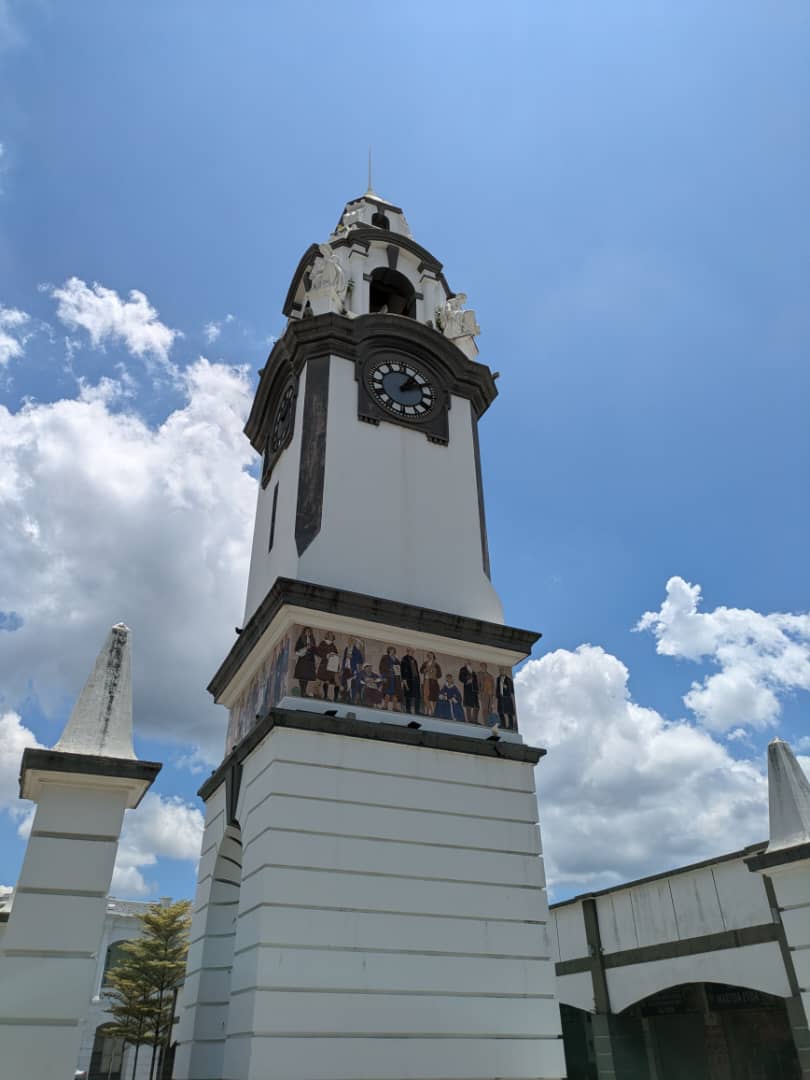When scrutinizing Malaysia’s history, one might find it shaped by a sense of insecurity—especially in its dealings with foreign powers. Historical records reveal how Malaysia responded to foreign dilemmas, with the British colonial era being especially impactful.
The British, once upon a time a Western colonial power, brought significant development to the region. They introduced infrastructure influenced by the Industrial Revolution, including schools, roads, and railways. However, their role was not solely constructive. From the local perspective, the West also came as exploiters.
Take Ipoh, for instance—a town can be found as a symbol of exploitation. The town was rich with mineral resources in its soil and mountains, even the Ipoh tree, which is useful for hunting by the indigenous.
Typically, the town was destined to have its natural resources exploited, no matter which nationality landed on it. While Ipoh flourished as a mining hub in the early 20th century, there was a large influx of Chinese and Indian laborers. Many of whom later became citizens and helped shape the town’s multicultural identity today, after their help in exploiting the mines and exporting to Europe.
As a technology enthusiast, I acknowledge the transformative power of Western inventions. The West has been at the forefront of developing essential technologies that sparked countless other innovations—the first generative force. They are usually the first to inspire others.
It brings to mind a biblical parallel: After God created Adam, He did not leave him alone but gave him Eve. Together, they were commanded to steward the earth and multiply—to fill the world with life and purpose (Genesis 1:28). In a similar vein, the West, being first received the Bible, later invented the printing press in the form of machine (although was Chinese first invented printing in the form of concept and capability), allowing mass production and global dissemination of its teachings and stories. Missionary schools were built in Malaysia, a legacy to honor God, the creator.
This generative factor—rooted in both spiritual and technological beginnings—continues to shape various sectors around the world.
Below the quick review, aided by AI, of how Western inventions have profoundly influenced global development:
1.) Mass-produced books became a reality in 15th-century Germany thanks to Johannes Gutenberg’s printing press, accelerating the transmission of knowledge and ideas throughout Europe.Wikipedia
2.) Alexander Graham Bell’s 1876 invention, the telephone, revolutionized long-distance communication. Between 1910 and 1960, the world witnessed a dramatic increase in the number of telephones, rising from approximately 5.8 million to 50 million. Everypixel Journal
3.) The invention of the electronic digital computer by John Atanasoff and Clifford Berry in the U.S. in 1937 was a pivotal moment in computing history. Investopedia
4.) The 1947 invention of the transistor in the US revolutionized electronics, paving the way for modern computers and smartphones. Eupedia
5.) Nineteenth-century railroad expansion in the West dramatically fueled industrial growth by efficiently transporting goods and people. IMF eLibrary
Well, artificial intelligence is another invention the generative factor, helps human to process and organize information in a faster manner.
Blessing in Disguise
Interestingly, today, in Ipoh town, a Memorial Tower to remember Birch who was once upon a time being hated. Today, there is an Ipoh tree preserved in the railway’s garden from being hunted. Today, many mining lakes have been regenerated for recreational and tourist spots.
Despite the wounds of the past, Ipoh carries a remarkable regenerative spirit. This town continues to rise, reshaping its legacy into something meaningful and life-giving.
May God bless Ipoh—a town overcoming its past sorrows, continues to extend hope and goodness to others, in a greater creative and caring manners.
Reference:
1.) Ipoh tree with scar image – https://www.lars-fehlandt.de/2020/04/09/antiaris-toxicaria/
2.) Ipoh mining lake history: https://www.nationalgeographic.com/travel/article/partner-content-rediscovering-a-lost-world
3.) JWW birch history and photo: https://britishmalaya.home.blog/2019/05/22/the-murder-of-james-w-w-birch-the-first-british-resident-of-perak-in-1875/
The Birch Memorial Clock Tower – to remember James W. W. Birch, the British Resident of Perak in 1874. On November 2, 1875, he was assassinated by followers of a local Malay chief, Datuk Maharaja Lela. Birch implemented reforms in the state, but unfortunately, the local authority resisted him at the time.








